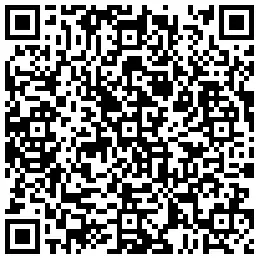BEIRUT: U.S. President Barack Obama warned Syrian President Bashar Assad Monday not to make the “tragic mistake” of turning to his stockpile of chemical weapons.
Assad’s beleaguered regime had earlier threatened to unleash the weapons if Syria faced international military intervention, although it vowed not to turn them against its own civilians.
“Given the regime’s stockpile of chemical weapons, we will continue to make it clear to Assad and those around him that the world is watching,” Obama told an audience of U.S. veterans in the western state of Nevada.
“They will be held accountable by the international community and the United States should they make the tragic mistake of using those weapons,” he said.
Earlier, Syrian Foreign Ministry spokesman Jihad Makdissi had acknowledged for the first time that it had chemical and biological weapons, saying they could be used if the country faced foreign intervention.International pressure on Assad has escalated in the last week with a rebel offensive in the two biggest cities and a bomb attack which killed four members of his inner circle in Damascus.
Defying Arab foreign ministers who Sunday offered him a “safe exit” if he stepped down, Assad has launched fierce counter-offensives, reflecting his determination to hold on to power.
Makdissi said the army would not use chemical weapons to crush rebels, but they could be used against forces from outside the country.
“Any chemical or bacterial weapons will never be used ... during the crisis in Syria regardless of the developments,” Makdissi said.
“All these weapons are stored and secured by Syrian military forces and under its direct supervision and will never be used unless Syria faces external aggression.”
The Syrian government later tried to back off from the announcement, sending journalists an amendment to the prepared statement read out by Makdissi, adding the phrase “if any,” in attempts to return to their previous position of neither confirming nor denying the existence of unconventional weapons.
The regime subsequently blasted foreign media outlets for taking its remarks out of context and focusing on the announcement of chemical weapons instead of its attempt to “respond to a media campaign aimed at preparing international opinion for foreign intervention into Syria under the false pretext that it was going to use weapons of mass destruction inside the country.”
Syria is believed to have nerve agents as well as mustard gas, Scud missiles capable of delivering these lethal chemicals and a variety of advanced conventional arms, including anti-tank rockets and late-model portable anti-aircraft missiles. Damascus has not signed a 1992 international convention that bans the use, production or stockpiling of chemical weapons, but officials in the past have denied that it had any stockpiles.
As violence escalates in Syria, insurgents have said they fear Assad’s forces will resort to non-conventional weapons as they seek to claw back rebel gains across the country.
Western and Israeli countries have also expressed fears that chemical weapons could fall into the hands of militant groups as Assad’s authority erodes.
U.N. chief Ban Ki-Moon meanwhile said the use of chemical weapons in Syria would be “reprehensible.”
“It would be reprehensible if anybody in Syria is contemplating [the] use of such weapons of mass destruction like chemical weapons,” Ban told reporters in Belgrade on the fourth leg of his Balkans tour.
“I sincerely hope the international community will keep an eye on this so that there will be no such things happening,” he added.
Makdissi also condemned calls for Assad to step down at a meeting of Arab foreign ministers in Qatar over the weekend, calling it a “flagrant intervention” in Syria’s internal affairs.
“We regret that the Arab League stooped to this immoral level in dealing with a founding member instead of helping Syria,” he said.
Arab League ministers meeting in Doha Monday urged the opposition and the rebel Free Syrian Army to form a transitional government, Qatari Prime Minister Sheikh Hamad bin Jassim al-Thani told a news conference in Doha.
But Iraq and Algeria Monday rejected the Arab League call for Assad to step down, saying that was a sovereign decision for the Syrian people.
“This call is not appropriate at this time because it is interfering in the sovereignty of another country,” Iraqi Deputy Foreign Minister Labid Abbawi told AFP. “There are other means to secure a peaceful transition of authority.”
On Monday the army shelled rebel forces in the northern city of Aleppo and stormed the southern Damascus neighborhood of Nahr Aisha, breaking into shops and houses and burning some of them, activists said.
Video showed dozens of men in green army fatigues massing in the neighborhood, which looked completely abandoned. Men carrying machine guns and rocket-propelled grenade launchers knocked and then kicked down doors and climbed through windows.
Assad’s forces have reasserted control over several Damascus areas since they seized back the central Midan district Friday, following a devastating bomb attack that killed four of Assad’s top security officials Wednesday.
But Assad’s forces have lost ground outside cities, ceding control of four border posts on the Turkish and Iraqi borders.
Rebels also seized an army infantry school in the town of Musalmiyeh, 16 km north of Aleppo, and captured several loyalist officers, while others defected, a senior military defector in Turkey and rebel sources inside Syria said.
In Aleppo, activists said residents were fleeing the rebel-held districts of Al-Haideriya, Hanano and Sakhour after army shelling and clashes between rebels and government forces.
A rebel fighter said the rebels had destroyed three tanks in the Hanano district and predicted weeks of fighting in Syria’s largest city.
“The regime is fighting for its survival. God willing by the end of Ramadan, Aleppo will be in our hands,” Mustafa Mohammad said.
The fighting in Damascus, Aleppo and the eastern city of Deir Ezzour has been some of the fiercest yet.
Rebels were driven from the Mezzeh district of Damascus Sunday, residents and opposition activists said, and over 1,000 government troops and allied militiamen poured into the area, backed by armored vehicles, tanks and bulldozers.
Government forces executed at least 20 men, aged approximately 20 to 30, activists said by phone from Mezzeh.
“Most had bullet holes, one with as many as 18. Three had their hands tied behind their back. Some of the men were in their pajamas. Several had their legs broken or fingers missing. Others were stabbed with knifes,” said Bashir al-Kheir, one of the activists.
Opposition and rebel sources say the guerrilla fighters in the capital may lack the supply lines to remain there for long and may have to make tactical withdrawals.
The neighborhood of Barzeh, one of three northern areas hit by helicopter fire, was overrun by troops commanded by
Assad’s brother, Maher Assad, 41, who is widely seen as the muscle maintaining the Assad family’s rule.


